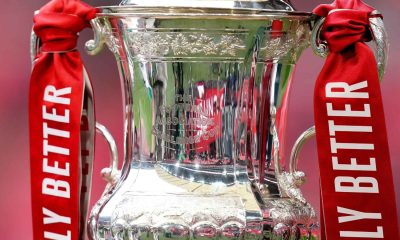
Football is so ingrained in the culture of many European countries that it goes beyond the sort of reach a sport should have. For many people in England, France, Spain, Italy and Turkey, football is more than a sport to watch on TV; they live and breathe their local team, and they follow them, sometimes all over Europe to support them. Non-league football might seem like a second-rate alternative to bouncing, boisterous stadiums with 60 or 70 thousand people, but the premise remains precisely the same.
Non-league football in England
In England, many non-league teams represent the town, village or ideals of the area in which they reside. Football clubs aren’t simply sporting organizations – they’re an embodiment and extension of what the area represents. These teams and clubs symbolize unity, togetherness and a sense of community, and provide jobs for local people.
Growing attendances have helped to bolster non-league football, and streaming sites such as YouTube can deliver much longer highlights from games; this has helped shine a light on the lower leagues. The definition of non-league football is any game that takes place between the fifth tier and below of the English game. In addition, a growing number of people are attracted to non-league football, disillusioned with the amount of money involved in the top flight and how the essence of the working class game is coming under threat because of the “global brand” business the Premier League has become.
Premier League betting
The Premier League remodeled its approach to televised sport in the early 1990s, bringing a whole new way to watch the game. Betting markets quickly followed suit, using the latest technology and allowing football bettors to place their wagers in real time using the internet, and later on, their smartphones and mobile devices to do so. As betting companies continued to develop these innovative plans, accumulator betting, in-play, cash out and supercharged cash out options started bringing more bettors to the market to explore what was on offer.
The top flight of English football is an international sporting juggernaut – with billions of people tuning in every season, it is one of the most valuable sporting markets in the world. While non-league betting is seeing increased numbers, some believe this is the trickle-down effect of a market and economy that allows people to place a broader range of wagers.
A cultural shift?
Over half of the teams in the Premier League are now owned by billionaires, and while there’s an argument that some of them have done more good than harm, football is still considered a bastion of the working class. Before Sky and the Premier League brought in hundreds of millions of dollars’ worth of TV money, tickets were cheap and affordable, and the players didn’t receive anywhere near the wages they do in the modern game. There was a much stronger connection with the community and the people who represented the community.
It’s hard to argue that because top players in the Premier League are paid such extreme and exorbitant amounts of cash there is a clear disparity and lack of connection between them and the fans and communities the club is meant to represent. Splinter clubs like FC United of Manchester and the City Of Liverpool FC are non-league teams that bring in thousands of fans who become extremely unhappy at billionaire owners running their cherished institutions into the ground.
Non-league legitimacy
There is still magic in the lower leagues and the FA Cup is testament to this. The match a few weeks ago, with Bracknell Town knocking Dagenham & Redbridge out of the FA Cup, shows how in-tune these non-league clubs are with their local communities and towns.
While these teams are exceptions at the moment, as the game continues to welcome owners who are more difficult for local working class fans to stomach, non-league football has become the unlikely benefactor, and with this added popularity comes more people looking to place wagers on the markets using the latest technology they have at their disposal.
Conclusion
Players who play for non-league teams, often outside their primary job, are the true heart of what English football represents for many fans. As this respect grows for the players who keep the grassroots game alive, and more people are drawn to what these players represent, this results in more people checking out the betting markets in the same way they do with the Premier League. Ultimately, more eyes on the games means more people looking at the betting markets, so the fact that there’s been a rise in both doesn’t necessarily mean one market exists solely because of the other, but there’s a vital element of mutual inclusivity.



















